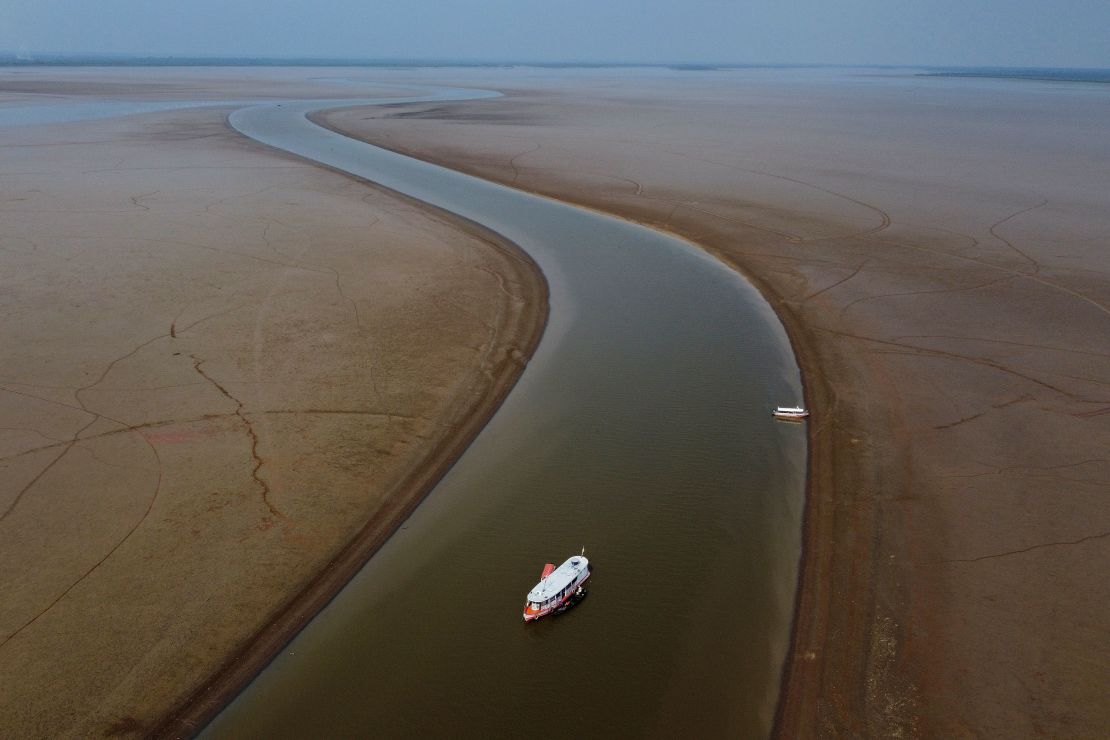More than 100 dolphins dead in Amazon as water hits 102 degrees Fahrenheit | CNN

CNN
—
More than a hundred dolphins have been found dead in the Brazilian Amazon amid an historic drought and record-high water temperatures that in places have exceeded 102 degrees Fahrenheit.
The dead dolphins were all found in Lake Tefé over the past seven days, according to the Mamirauá Institute, a research facility funded by the Brazilian Ministry of Science.
The institute said such a high number of deaths was unusual and suggested record-high lake temperatures and an historic drought in the Amazon may have been the cause.
The news is likely to add to the concerns of climate scientists over the effects human activity and extreme droughts are having on the region.
“It’s still early to determine the cause of this extreme event but according to our experts, it is certainly connected to the drought period and high temperatures in Lake Tefé, in which some points are exceeding 39 degrees Celsius (102 degrees Fahrenheit),” the institute said in comments carried by CNN affiliate CNN Brasil.
The Amazon River, the world’s largest waterway, is currently in the dry season, and several specimens of river fauna are also suffering from record-high temperatures.

Researchers and activists are trying to rescue surviving dolphins by transferring them from lagoons and ponds in the outskirts to the main body of the river where the water is cooler, reported CNN Brasil, but the operation is not easy due to the remoteness of the area.
“Transferring river dolphins to other rivers is not that safe because it’s important to verify if toxins or viruses are present [before releasing the animals into the wild],” André Coelho, a researcher at the Mamiraua Institute, told CNN Brasil.
The drought in the Amazon is impacting the economy as well.
Below average levels of water have been reported in 59 municipalities in Amazonas State, impeding both transport and fishing activities on the river.
Authorities expect even more acute droughts over the next couple of weeks, which could result in further deaths of dolphins, CNN Brasil reported.







